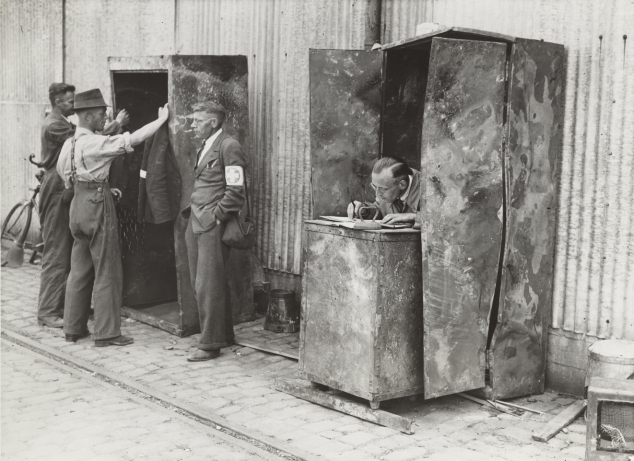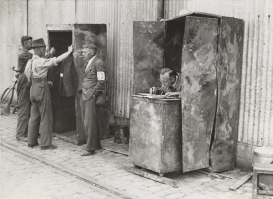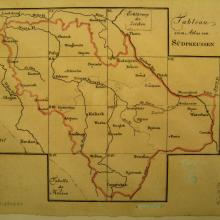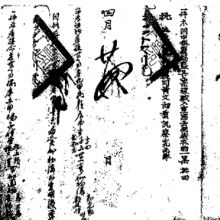Bureaucracies have emerged in every corner of the world, seemingly spontaneously, wherever large territories, resources, and populations were to be governed. Bureaucracies have given, and still give, paradoxical answers to the problem of governing on scale: they use abstraction to rule specific people and places; they assign authority to individuals who depend on the work of many hands and minds; they make themselves accountable to stakeholders only to be able to act more independently. Since the early modern period, bureaucratic tools of knowledge production and control seem to have moved effortlessly between fields established as distinct spheres: from the state to businesses to science, and vice versa; and presently, these transmissions are facilitated by "meta-bureaucracies" such as the ISO or the UN. Bureaucracies in the 21st century (unlike the people who staff them or whom they govern) have learned to speak a common language, visible in the relentless repetition of architectural form, shared accounting and assessment protocols, or the unencumbered flow of cargo across borders of all sorts. Bureaucracy, an ancient mode of governing on large scales seems to be up to the challenges of a globalizing world.

“Make do and mend! A civil servant, working in Radiostraat where scrap metals are collected, installed himself in a burnt steel cupboard. A burnt strong-box serves as a desk and an old iron as paperweight.” Image: De NV Polygoon collectie WO II, Rotterdam 1940. Image: Rijksmuseum, object number: NG-2006-49-26.
But how have bureaucracies learned to know the world that they aspire to govern? And, conversely, how does their knowledge production shape their inner structure? These questions have been raised not only in the history of science and technology, but also in colonial and postcolonial studies, business and administration history, as well as in media and organization studies. Practices of collecting and transforming data have become popular objects of study in these disciplines, yielding a rich literature on how knowledge was produced and applied in state administrations, businesses, academic and religious institutions, as well as other public and private organizations. This working group will align these diverse approaches to tackle big questions of bureaucratic knowledge production within larger frameworks such as governance, empire, and capitalism: Did the need to know on a large scale shared by bureaucracies—from the Ming state to Microsoft—result in similar practices of collection, and logics of abstraction? Is similarity explained by assuming convergent evolution, or by looking for transmission? Or do bureaucracies in different epochs, places and domains have more in common with their embedding context, than with each other? By focusing on an intensely political area of knowledge production, use, and abuse, we will expand questions of historical epistemology—How did actors know?—into questions of political epistemology: How was such knowledge both a means and an end of decision-making in situations of conflicting interests?
This Working Group started with an exploratory conference in June 2017, organized in cooperation with and hosted by the German Historical Institute in Washington DC. A follow-up authors’ meeting to discuss first drafts of papers will take place at the MPIWG in late May 2018. Members of this working group include: Maria Avxentevskaya (MPIWG), Anna Echterhölter (University of Vienna), Maura Dykstra (CalTech), Susanne Friedrich (University of Munich), Harun Küçük (University of Pennsylvania), Philipp Lehmann (UC Riverside), Kathryn Olesko (Georgetown University), Renée Raphael (UC Irvine), John Sabapathy (UCL), Jacob Soll (University of Southern California, Dornsife), Ted Porter (UCLA), Sixiang Wang (Stanford). Our aim is to produce a collective Working Group book by 2019.



